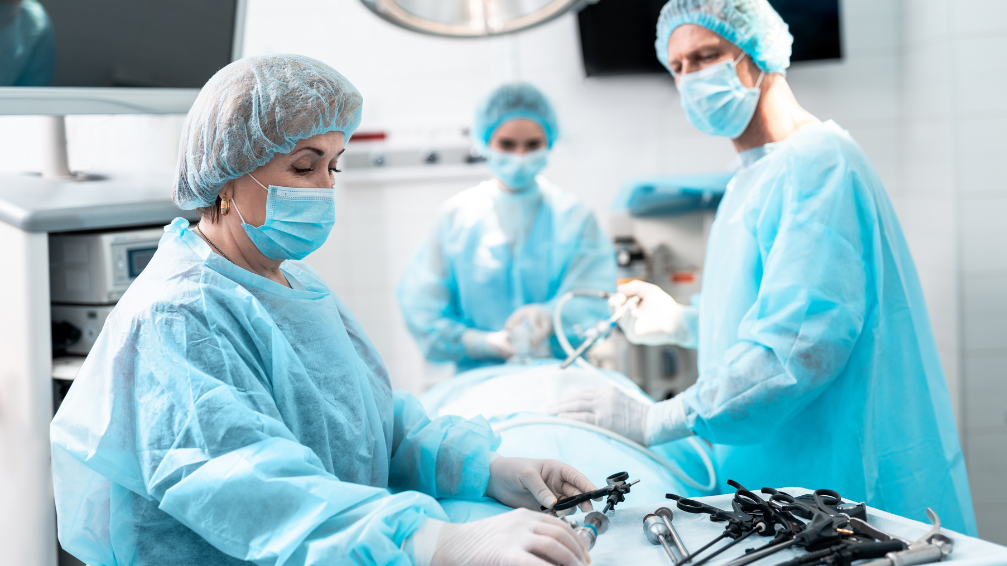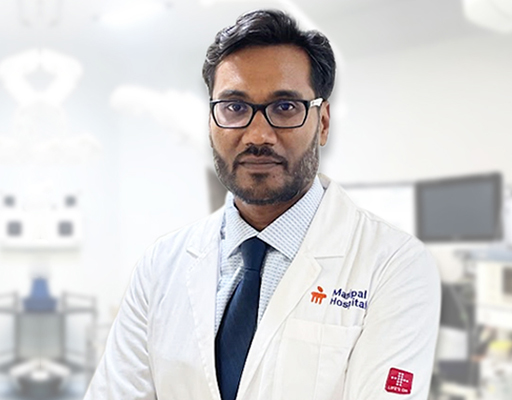
Distinguishing Laparoscopic and Robotic Surgery: What Sets Them Apart
We believe minimally invasive care is life-enhancing care

Laparoscopic and robotic surgery are two technical wonders that have completely changed the field of modern surgery and altered conventional methods.
Here at MH Robotic Surgery Clinic, we set out to dispel the mystery around these cutting-edge techniques and reveal what makes them special. Patients looking for the finest care possible must understand the differences between these techniques, which range from complex bowel and liver surgeries to precision-driven robotic cancer surgery.
Understanding Laparoscopic Surgery
Usually known as minimally invasive, laparoscopic surgery comprises making tiny incisions to introduce specialized instruments and a camera. Using a camera feed, this method allows surgeons to see the surgical site and perform accurate movements through small apertures. Due to its advantages—which include less scarring, a quicker recovery period, and less pain following surgery—it is the best option for a number of treatments, including intestinal surgeries.
The Rise of Robotic Surgery
-
Redefining Precision
The characteristic of robotic surgery is its unmatched precision. Under the guidance of a proficient surgeon, the robotic appendages provide minuscule motions and articulation that surpass human capacities. This degree of accuracy is especially important for small surgeries involving the liver, an intricate organ that demands the highest level of accuracy.
-
Improved Maneuverability and Dexterity
Surgeons have an unparalleled degree of dexterity thanks to the flexibility and range of motion of robotic arms. This improved mobility enables precise motions even in difficult anatomical locations, which is important in complex procedures like bowel surgery.
-
More Complex Visualization
Three-dimensional, high-definition vision of the operative site is possible with robotic surgery. This increased clarity makes it easier for surgeons to navigate the liver’s numerous components and undertake difficult surgeries with greater accuracy.
-
Benefits of Liver Surgery
Given the intricacy of the organ and its essential activities, liver surgery usually calls for a cautious approach. The accuracy and improved vision of robotic surgery are crucial during procedures such as tumor resections, where preserving healthy tissue while excising problematic areas is essential.
-
Innovation
Robotic surgery in Bangalore is being used as a shining example of innovation by the MH Robotic Surgery Clinic. Bound to push boundaries, we redefine possibilities in treating a range of disorders, including cancer interventions and liver ailments, by utilizing robotic technology.
-
Sustained Innovation and Progress
The field of robotic surgery in Bangalore is always changing as new technologies are developed to expand its capabilities. In order to guarantee that patients receive the newest surgical technologies, MH Robotic Surgery Clinic continues to be at the forefront of implementing these advancements.
Differentiating Between Robotic And Laparoscopic Surgery
Apart from the instruments used, laparoscopic and robotic surgery differ in terms of precision, control mechanisms, and subtleties of movement.
-
Control Mechanisms
- Laparoscopic Surgery: Through tiny incisions, surgeons perform direct manipulation of handheld equipment during laparoscopic surgeries. The hand movements and coordination of the surgeon are the only means of controlling this equipment.
- Robotic Surgery: On the other hand, robotic surgery employs a console that allows the surgeon to manipulate robotic arms. With improved accuracy and range, these arms mimic the surgeon’s hand movements, converting even the smallest gestures into exact bodily activities.
2. Accuracy and Adaptability
- Laparoscopic Surgery: Although less intrusive, laparoscopic surgery does not have the improved precision and flexibility that robotic arms do. The capabilities of the tools and the physical dexterity of the surgeon restrict their motions.
- Robotic Surgery: In this application, robotic arms provide unmatched dexterity, precision, and range of motion. Since they can more easily access complex anatomical areas, they are especially useful in procedures where accuracy is critical, such as liver or bowel surgery.
3. Tricky Processes and Difficult Tasks
- Laparoscopic Surgery: Laparoscopic operations are less invasive and need less recovery time, making them ideal for smaller jobs and basic interventions.
- Robotic Surgery: The benefits of robotic cancer surgery are particularly noticeable in difficult cancer treatments or liver interventions. It is a popular option for such complex procedures because of its precision and ability to maneuver among the various architecture of the body.
4. Impact on Cancer Interventions and Liver Surgeries
- Laparoscopic Surgery: Although useful in some cases, the limited precision and agility of laparoscopic procedures can present challenges in complex liver surgery.
- Robotic Surgery: Robotic surgery’s advanced precision allows surgeons to navigate delicate structures accurately, proving invaluable in challenging cancer and liver procedures.
5. Knowledge Gained and Proficiency
- Laparoscopic Surgery: Since laparoscopic surgeons handle instruments directly, they must possess high manual dexterity. Hand-eye coordination and instrument manipulation are on the learning curve.
- Robotic Surgery: To properly use the console, a surgeon must have specialized training. Surgeons undergo rigorous training to maximize robotic arm utilization and ensure procedural control and precision.
Essentially, robotic surgery has increased precision and mobility to previously unheard-of levels, which is especially helpful in sophisticated robotic cancer surgeries and intricate liver surgeries where precision is critical. Laparoscopic surgery, on the other hand, was the pioneer of minimally invasive techniques. The complexity of the surgery, patients needs, and surgical team’s experience all play a role in whatever strategy is selected.
Concluding Thoughts
Within the field of robotic and laparoscopic surgery, every technology excels due to its advantages. Whether a patient needs a laparoscopic bowel surgery or a sophisticated robotic cancer surgery, MH Robotic Surgery Clinic’s dedication to precision, innovation, and patient-centric care guarantees that they receive top-notch care that is customized to meet their needs. We combine technology and experience to provide successful interventions, a quicker recovery, and an enhanced quality of life using laparoscopic and robotic procedures.
Frequently Asked Questions
For many patients getting robotic treatments, the initial costs may be higher, but the benefits of shorter hospital stays and quicker recovery tend to outweigh the total costs.
There are risks associated with any operation, but because robotic surgery is precise and less intrusive, some of the risks associated with traditional surgery are reduced.
To operate robotic systems, surgeons must complete specific training, guaranteeing their proficiency in making efficient use of this cutting-edge technology.
Laparoscopic surgery involves handheld instruments manipulated directly by surgeons through small incisions, while robotic surgery uses robotic arms controlled by surgeons for enhanced precision and maneuverability.
Since it is precise and less intrusive than traditional surgery, robotic surgery can lower some surgical risks. All procedures, nevertheless, have some risks, which you should discuss with your surgeon.
Robotic surgery minimizes blood loss and promotes quicker recovery by providing improved precision and agility, which is especially useful in complicated liver surgeries.
Because of its accuracy and adaptability, robotic surgery is used in many different procedures, such as complicated cancer treatments, and liver and bowel surgeries, among others.
Yes, the MH Robotic Surgery Clinic offers patients precise and cutting-edge treatment options, specializing in robotic surgery procedures for bowel-related conditions.
Compared to open procedures, laparoscopic and robotic surgeries usually yield quicker recovery periods. However, depending on the specifics of each case and the techniques used, recovery times can change.
Compared to open surgery, laparoscopic surgery frequently leads to fewer incisions, less scarring, less pain following surgery, and shorter hospital stays.



